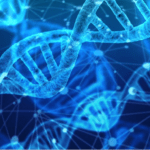Searching for new COVID-19 treatments, an EU-funded project conducted a supercomputing experiment to study the interaction of over 70 billion antiviral molecules with SARS-CoV-2 proteins.
A huge molecular computation experiment was recently conducted to identify new treatments against the SARS-CoV-2 virus. Run by the EU-funded EXSCALATE4CoV project, the experiment is believed to be the most complex supercomputing simulation to date.
The goal of the experiment was to simulate the coronavirus’s behaviour in order to identify the most optimal therapeutic treatment. The simulation began late on Friday 19 November and ended on the morning of Monday 21 November. In just 60 processing hours, EXSCALATE4CoV tested the interaction of 71.6 billion molecules on 15 “active sites” of the virus. A staggering 1 074 billion interactions were processed in total, corresponding to 5 million simulations per second.
Overall, the experiment generated 65 terabytes of results – that is, 4.33 terabytes for every SARS-CoV-2 site analysed. During the simulation, access was provided to partial results in real time. The complete results of the simulation are being made freely available to the scientific community through the EXSCALATE4CoV project’s open science portal MEDIATE.
The molecular simulation
The aim of the simulation – which took place in Italian global energy company Eni’s Green Data Center in Ferrera Erbognone, Italy – was to identify the molecules that can bind to the virus, neutralise it and stop it from replicating itself. According to a news item posted on Eni’s website, “[t]he experiment simulated ‘molecular docking’, i.e. all possible intermolecular links between virus proteins and other already known molecules among potentially usable drugs, natural products, nutraceuticals and other substances on the market from public databases and those made available by pharmaceutical companies. By processing the results of the screening, it is possible to identify candidate molecules, i.e. those capable of attacking the virus and locking it in and preventing it from unleashing its viral load. The aim is to have more effective drugs that have already been clinically tested and are therefore immediately available.”
Combined supercomputing power
The experiment’s astonishing output was made possible by the combined supercomputing power of Eni’s HPC5 and Italian non-profit consortium Cineca’s Marconi100. The HPC5 is a set of parallel computing units with a peak processing power of 51.7 petaflops. Combined with supercomputer HPC4, which has been running since 2018, the peak computational capacity achieved equals 70 petaflops, equivalent to 70 million billion mathematical operations in a single second. According to the June 2020 TOP500 list, HPC5 is the sixth most powerful supercomputer in the world and the highest ranked in Europe.
The Marconi100 is Cineca’s new accelerated cluster and has a computing capacity of approximately 32 petaflops. It ranks ninth on the TOP500 list and is the second most powerful supercomputer in Europe. Together, the HPC5 and the Marconi100 have a total computing capacity of 81.1 petaflops, and are capable of performing 81 million billion floating point operations per second. In addition to the two supercomputers, the simulation also made use of project coordinator Dompé’s molecular library and the virtual screening software accelerated by project partners Politecnico di Milano and Cineca.
The supercomputing experiment is part of the second phase of EXSCALATE4CoV (EXaSCale smArt pLatform Against paThogEns for Corona Virus), aimed at aiding COVID-19 patients over the next 6 months. Research conducted during the project’s first phase resulted in a clinical trial being authorised for the use of the osteoporosis drug raloxifene as a promising treatment for COVID-19.







Leave a Reply